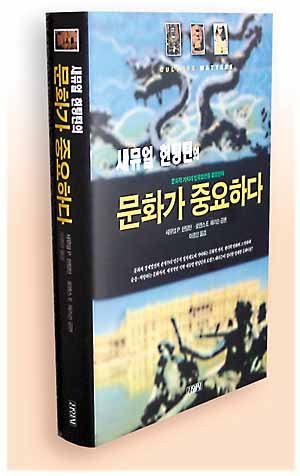Pitfalls of Theory of Cultural Reconstruction
Pitfalls of Theory of Cultural Reconstruction
Posted October. 06, 2001 08:45,

Whenever foreigners make our culture as a subject of discussion, I am so embarrassed that I want to hide in a (rat) hole. Culture of education that makes children alike, culture of family that is busy with taking care of one`s own family members, culture of chaebol that outshines feudal lords with owner-centered power exercise, culture of labor-management that makes antagonism only without compromise, culture of corruption that is not affected by the reform government, as if it is food chain, culture of Park Jung-Hee style military dictatorship that begins to rear its ugly head whenever there is economic crisis, and culture of Cold War that makes an allergic reaction against the talks about unification are the some of examples. There are still disgraceful cultures in our society everywhere.
This book, in which 20 prominent scholars participate, grabs one`s attention by beginning with an interesting question, ``What kind of relationship does culture of a nation have with the economic development?`` Based on a premise that market economy and democracy are the universal aims of the national development, this book examines cultural restraints that hinders such a national development from all angles. This book evenly deals with `regressive` cultural modalities of non-Western societies, such as Asia, Africa, and Latin America. Moreover, our feature, which is reflected by outsiders, is well projected in this book.
Samuel Huntington, known for his `Clash of Civilizations`, raises the importance of analyzing aspects of a national development from a cultural perspective in the preface. He writes, ``Economic level of South Korea in the 1960s was similar to Ghana in Africa. However, South Korea achieved industrialization and democratization after 30 years, whereas Ghana did not. How can one explain such a huge developmental gap?``
Majority among the 20 scholars, including Francis Fukuyama, pays attention to the cause and result of the foreign currency exchange crisis that hit the East Asia in late 1990s. They diagnose that although Asian values based on Confucian thought have led the high- speed growth by appreciating education and achievement from a long-term perspective, they can also be stumbling blocks in reaching the completion of Westernized industrialization. Especially, the scholars are concerned that improvement of laws and systems may be delayed due to the deep-rooted connection-oriented system of South Korea and China, and the accumulation of social capital that is based on trust may be violated.
However, thanks to several prominent writers, this book does not lose the balance. Professor of Economy Jeffery Sachs of Harvard University, primarily citing examples of Africa, warns the danger of cultural determinism on the national development by arguing that ``the importance of culture should be examined by the more inclusive analytical framework that admits the influence of other variables such as politics, economy, and geography.`` Professor of Chinese Religion and Philosophy Tu Wei-Ming of Harvard University says that ``it is not that only one culture corresponds with modernity. It is possible to develop market economy and democracy while seriously taking the nation and family into consideration.``
Lawrence E. Harrison and Samuel Huntington. Editors. `Culture Matters` (2000). Translated by Lee Jong-In.
Lee Chan-Keun (Professor of International Economics at Incheon University)




![[천광암 칼럼]장동혁은 대체 왜 이럴까](https://dimg.donga.com/c/138/175/90/1/wps/NEWS/IMAGE/2026/02/22/133399127.1.jpg)


